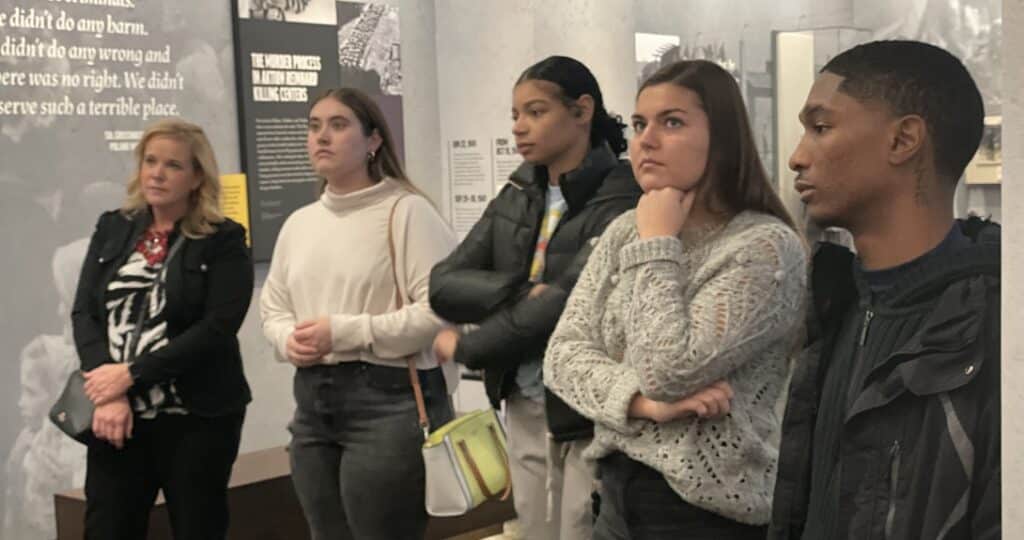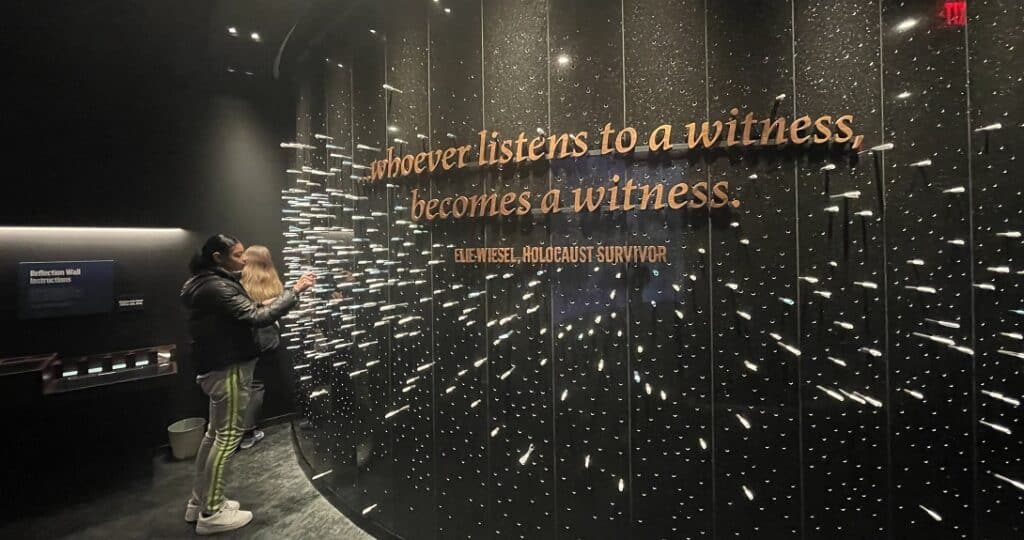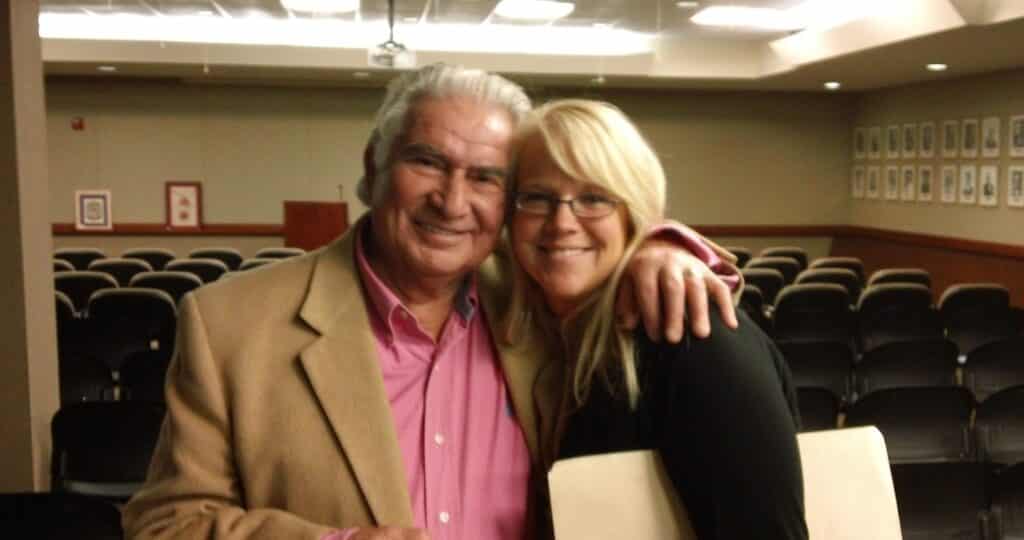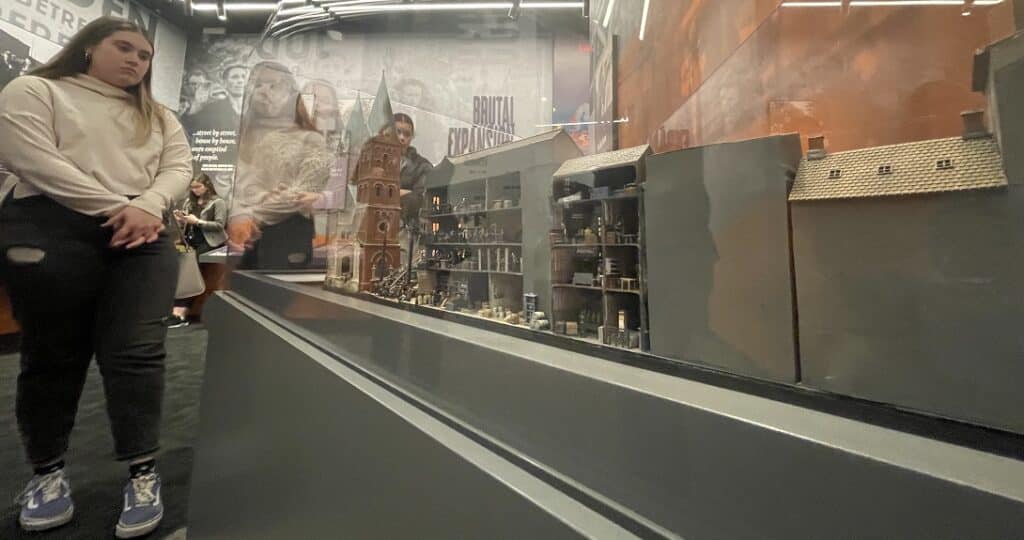A field trip to the St. Louis Kaplan Feldman Holocaust Museum provided an opportunity for reflection by Siba students recently. The college’s Diversity Studies class made a visit to the newly expanded campus where they gained a deeper understanding of one of the most devastating events of the modern era.

The museum is dedicated to preserving the legacy and tragedy of the deliberate genocide of Jews during World War II. Students learned that many of the prejudices that fed into the persecution of Jews decades ago still exist today. To fight those biases, the institution’s mission is to “Use the history and lessons of the Holocaust to reject hatred, promote understanding, and inspire change.”

The museum accomplishes this mission by telling the stories of survivors who settled in the St. Louis region. While difficult to single out any one account, the story of museum ambassador Ben Fainer holds a special place in our hearts at Siba. Fainer hosted and led tours for countless numbers of visiting Siba Diversity students over the past 2-3 decades before his passing in 2016. Below, he is pictured with Dr. Emilee Schnefke during a visit to the museum back in 2011.

Fainer was originally from Poland. He was forced to work at a number of Nazi labor camps including Buchenwald. He lost his mother, three siblings, and numerous extended family members to the Holocaust. He was liberated by American soldiers while on a final death-march in the spring of 1945. Fainer went on to immigrate to Canada, and eventually settle in St. Louis where he worked at Barad & Co. here in the Downtown St. Louis Garment District where our Siba campus is located. You can read his poignant account in his memoir published in 2012.
The museum further explores ways for visitors to connect to the Holocaust and its survivors through the displays of artifacts and an interactive main exhibit. Siba students began their tour with Hitler’s rise to power, then learned about the escalation of persecution and the culmination of government-led programs into systematic genocide called the “Final Solution.” Despite the devastating content, the exhibit ends on a hopeful, uplifting note with the wisdom and hope of its survivors with living remembrances that serve as a powerful reminder of the consequences of the Holocaust.

A special thank you to our guide, Diane Peach, who we learned during our visit, had taught Siba’s Academic Dean, Dr. Schnefke, back her grade school days!
